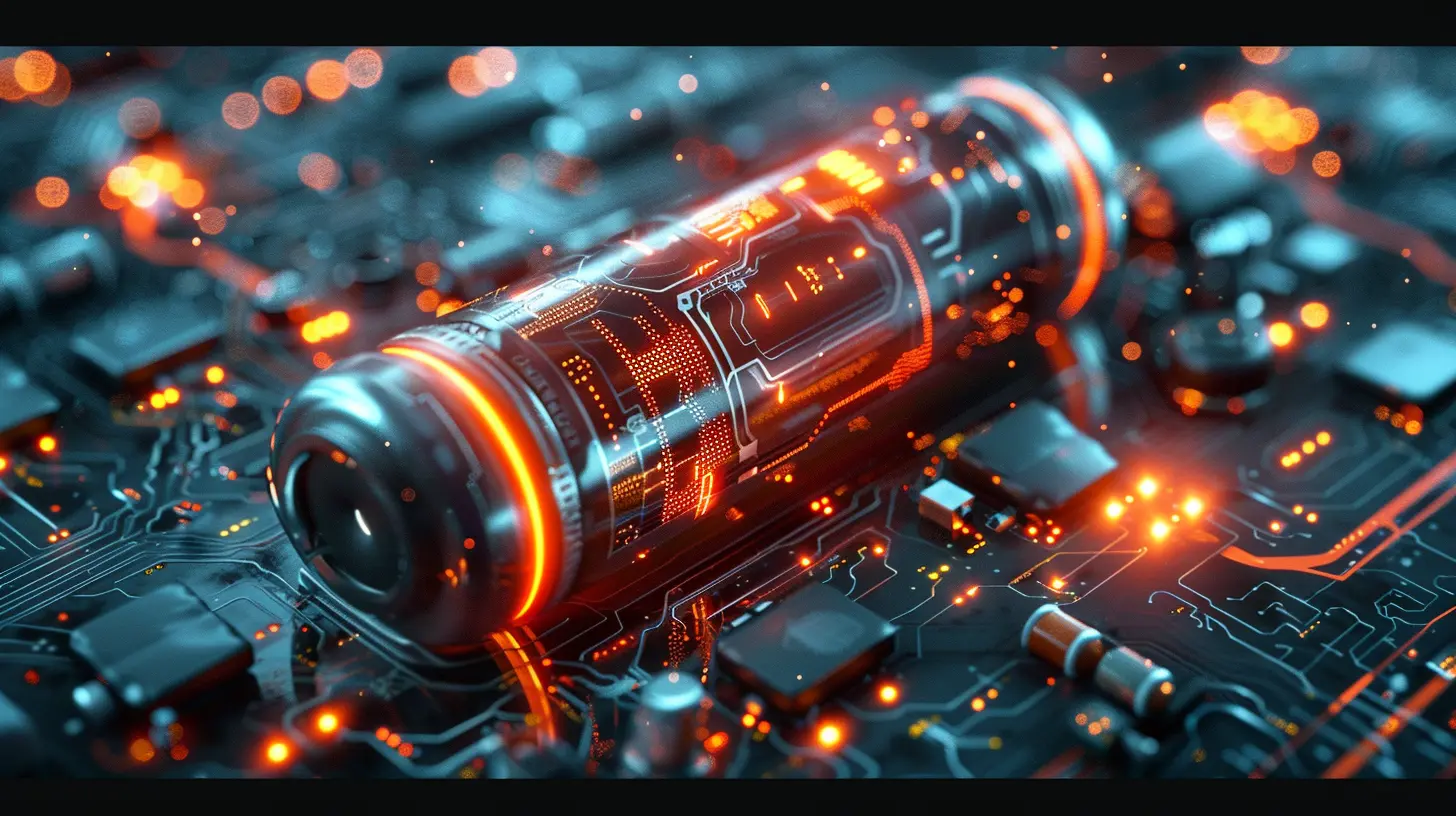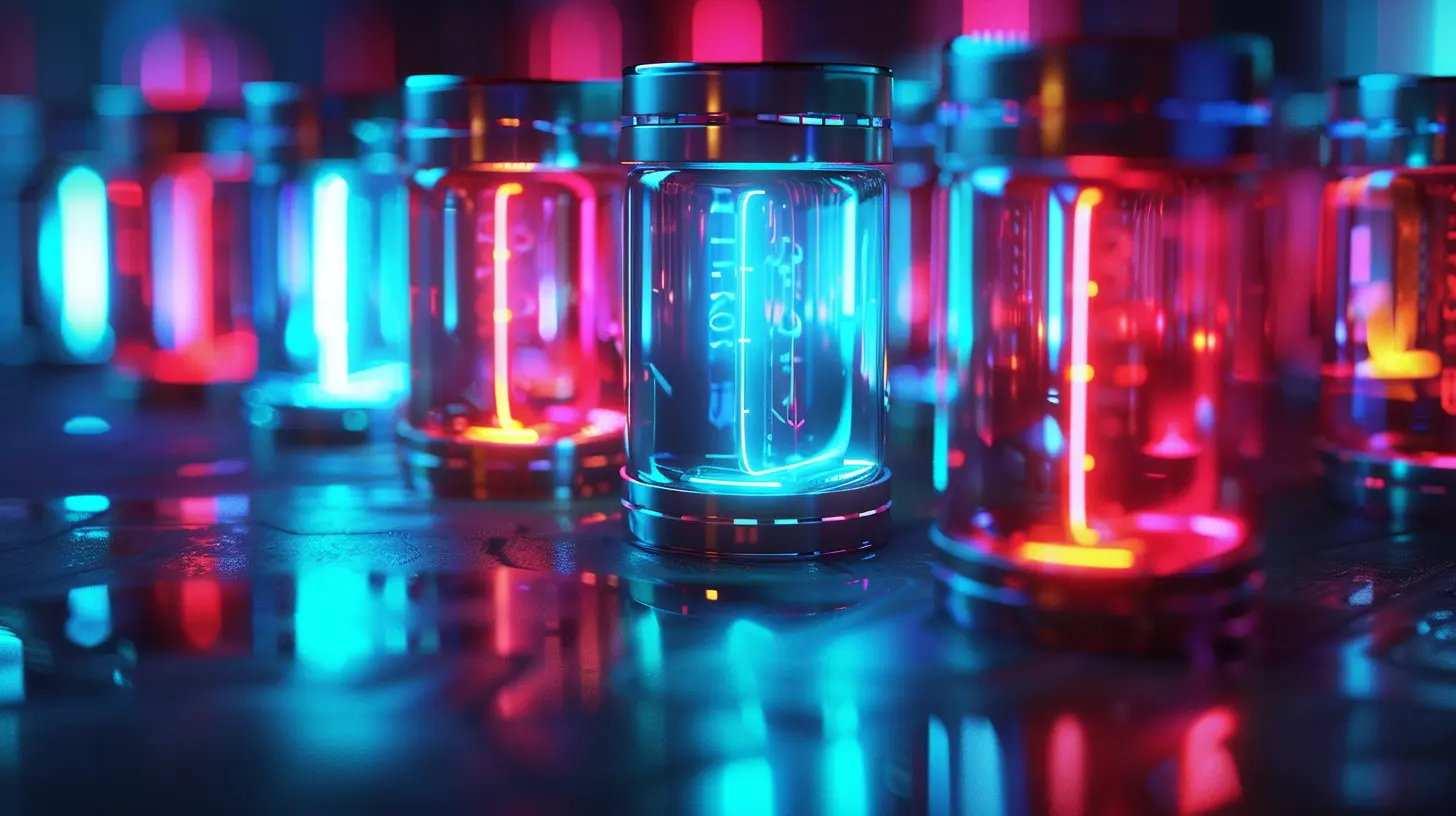The Promise of Solid-State Batteries in Next-Gen Gadgets
24 October 2025
Let’s be honest — we’re all a bit obsessed with our gadgets. From smartphones and laptops to wearables and EVs, these devices have become our lifelines. But there’s one thing we can all agree on: battery life still kinda sucks. How many times have you panicked because your phone hit 5%? Or avoided using your smartwatch on a long trip to save juice?
Now, imagine a world where you don’t have to worry about your device running low just when you need it most. That’s the world promised by solid-state batteries (SSBs). This isn’t just an upgrade — it’s a revolution in the making.
So, what are these magical power blocks, and why is everyone from Apple to Toyota betting big on them? Buckle up — we’re diving deep into the electrifying promise of solid-state batteries in next-gen gadgets.
What Are Solid-State Batteries, Anyway?
Alright, quick science detour (but stick with me — it'll be worth it).Traditional lithium-ion batteries — the kind in your phone, laptop, and even your Tesla — use a liquid electrolyte to shuttle ions back and forth between the anode and cathode (think of this as energy dance choreography). But liquids can be volatile, flammable, and, let’s face it, a bit messy under pressure.
Enter solid-state batteries. As the name suggests, they swap out the goopy liquid electrolyte for a solid electrolyte. This simple switch opens the door to a whole new world of performance, safety, and size benefits.
Think of it like replacing roller skates with a high-speed bullet train. Same function — completely different ride.
Why Should You Care? The Game-Changing Advantages of Solid-State Batteries
Wondering why tech companies are throwing billions into this tech? Let’s break down the perks:1. Longer Battery Life
Who doesn’t want a device that can go days — or even weeks — on a single charge? Solid-state batteries can store more energy in the same amount of space. That means your devices stay alive longer, with less of that desperate outlet-searching behavior.2. Faster Charging
Waiting hours for a full charge might soon be a thing of the past. Solid-state batteries have the potential to slash charging times dramatically. Imagine juicing up your phone from 0% to 100% while you grab a quick coffee.3. Safer Tech
No more overheating or exploding batteries (looking at you, hoverboards and early Galaxy Note 7s). Since they ditch the flammable liquid, solid-state batteries are much safer, even under stress. And that’s a big deal, especially for compact, high-performance gadgets.4. Smaller Devices, Bigger Power
Because solid-state batteries pack more energy into a smaller footprint, they can enable sleeker, lighter devices without sacrificing performance. Think ultra-thin laptops, slimmer smartphones, and next-gen wearables that do more without bulking up.
Real Talk: What's Holding Solid-State Batteries Back?
Okay, let’s pump the brakes for a second. If solid-state batteries are so amazing, why aren’t they in your phone right now?1. Manufacturing Challenges
Building solid-state batteries isn’t just plug-and-play. It requires entirely new manufacturing processes, materials, and equipment. That means huge upfront costs and lots of trial-and-error.2. Material Limitations
Not all solid electrolytes are created equal. Some are brittle. Some don’t conduct ions well. And finding the Goldilocks combo — safe, conductive, stable, and scalable — is still a work in progress.3. High Costs (For Now)
Right now, solid-state cells are expensive to make, especially at scale. But like all tech, costs will drop as production ramps up. Remember when flat-screen TVs cost a fortune?
The Solid-State Race: Who’s Leading the Charge?
It’s not just startups tinkering in labs — the solid-state battery race has become an all-out showdown between tech giants and automakers.⚡ Apple
Rumor has it that Apple is eyeing solid-state tech for future iPhones and even its long-rumored electric vehicle project. Given Apple's obsession with sleek design and performance, solid-state batteries fit their vibe like a glove.⚡ Samsung
Samsung is deep into R&D, aiming to eliminate the safety risks associated with traditional batteries. A safer, slimmer Galaxy? We’re here for it.⚡ QuantumScape
Backed by Volkswagen and Bill Gates, QuantumScape is one of the biggest names in solid-state battery development. They’ve already shown some big results in prototype tests — fast charging, long life, and minimal degradation.⚡ Toyota & Other Automakers
Solid-state batteries could be the secret weapon that makes electric vehicles cheaper, faster, and longer-lasting. Toyota plans to launch EVs with solid-state batteries as early as the next few years. Game. Changer.Impact on Everyday Gadgets: What You Can Expect
So when will you actually see this tech in the wild? Let’s peer into the (not-so-distant) future.📱 Smartphones
Imagine your phone lasting three days of heavy use and charging in 15 minutes. Solid-state batteries could make that dream reality. Plus, say goodbye to battery health degradation — these batteries have a much longer lifespan.🖥 Laptops
Work-from-anywhere just got real. With solid-state tech, laptops could become thinner, lighter, and last all day on a single charge — no bulky chargers required.⌚ Wearables
Fitness trackers and smartwatches live and die by their battery life. Solid-state batteries could allow for smarter, more powerful wearables that don’t need daily charging.🎮 Game Consoles & VR Devices
Portable gaming could get a major boost — longer playtime, quicker charges, and safer internals. VR headsets could finally lose the clunky battery packs and become truly wireless.Not Just Gadgets: The Ripple Effect
The benefits of solid-state batteries don’t stop at consumer tech. They're poised to cause ripples across several industries.🚗 Electric Vehicles (EVs)
EVs with solid-state batteries could go twice as far on a single charge, charge 10x faster, and last longer overall. This could eliminate range anxiety and bring us one step closer to an all-electric future.🛠 Energy Storage
Grid-scale energy storage powered by solid-state tech? That could be huge in enabling more reliable renewable energy systems.🚀 Aerospace & Defense
Lighter, safer, more energy-dense batteries are a holy grail in both aerospace and military applications. Think longer drone flight times or safer satellite systems.What the Future (Really) Looks Like
Now, let’s set expectations. We’re not talking about a massive overnight switch. Solid-state batteries will roll out in phases — likely hitting high-end gadgets and premium vehicles first, then expanding to the mainstream as production scales and prices drop.But it’s coming. And when it does, it’ll be like the shift from dial-up to broadband — you won’t want to go back.
The Bottom Line: Revolution in the Making
Solid-state batteries aren’t just a cool piece of tech — they’re the foundation for a whole new era in electronics. They solve a laundry list of current problems while opening the door to innovations we haven’t even dreamed up yet.Sure, there are hurdles to clear. But the promise? It’s massive. The next five to ten years could completely reshape how we power our lives, with gadgets that are smaller, faster, safer, and smarter.
And honestly? We’re here for it.
TL;DR — Your Quick Recap
- Solid-state batteries swap liquid electrolytes for solid ones, making devices safer, longer-lasting, and faster to charge.- Major players like Apple, Samsung, and Toyota are investing heavily in this technology.
- You’ll start seeing solid-state batteries in high-end gadgets and vehicles within the next few years, with broader adoption later.
- They could change everything from smartphones and wearables to electric vehicles and renewable energy.
all images in this post were generated using AI tools
Category:
Future TechAuthor:

Reese McQuillan
Discussion
rate this article
1 comments
Kenna Benson
Solid-state batteries: finally a tech upgrade that won’t fizzle out like your ex’s excuses! If they deliver on their promise, we might just kiss those bulky chargers goodbye. Here’s hoping for a future where our gadgets last longer than our attention spans – which, let’s face it, isn’t saying much!
October 28, 2025 at 1:56 PM

Reese McQuillan
Thanks for the humor! Solid-state batteries indeed hold great promise for extending gadget life and reducing bulk—let's hope they deliver!


